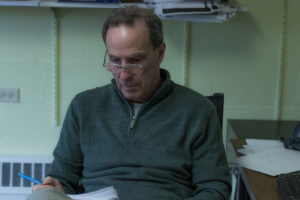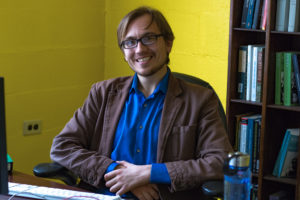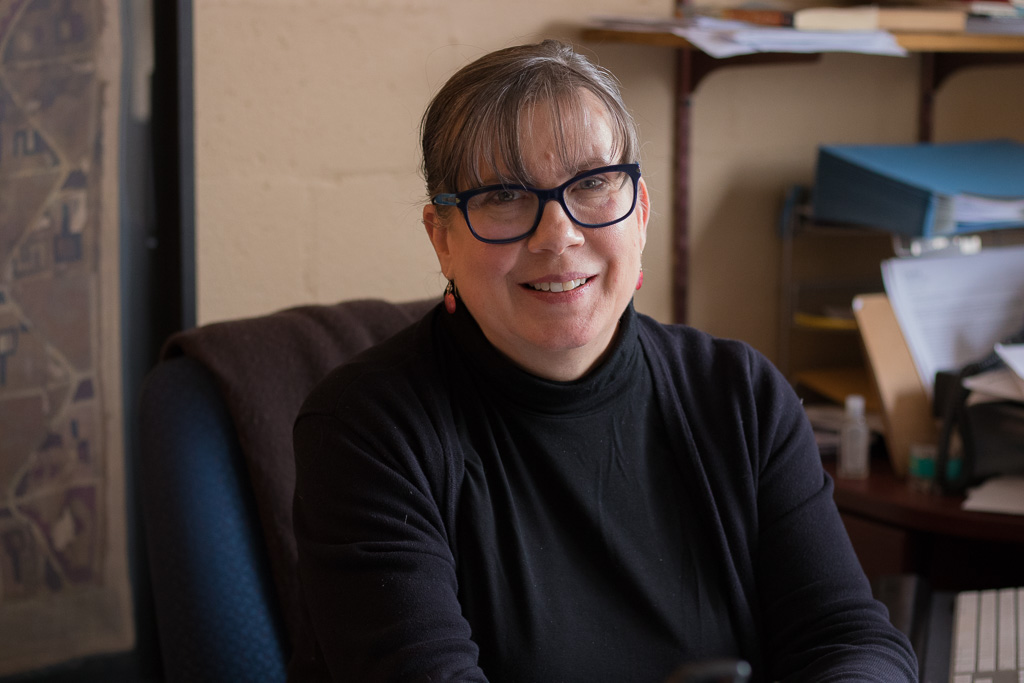In order to accommodate the growing community within the religion and philosophy department, many professors and students believe that at least one new professor is needed.
The department currently has three full-time professors as well as Joy Schroeder, the department chair, who splits her time between the university and Trinity Lutheran Seminary. Nate Jackson is the only full-time faculty member teaching philosophy and works alongside Michael Hiltbrunner, who is a full-time adjunct.
Jackson currently advises a total of 17 students who major or minor in philosophy. There is concern about a subject like philosophy being taught largely from one perspective.
“It’s not someone’s opinion that we are understaffed,” Hiltbrunner said. “When you’re understaffed, you’re also limiting what a student is exposed to.”

Junior philosophy and religion double major and philosophy club president Daniel Pawlowski shares the same frustration.
“I know I will have at least two classes with Jackson every semester and maybe one with Hiltbrunner,” Pawlowski said.
Despite enjoying those classes, Pawlowski didn’t feel that he was receiving a wide enough range of perspectives. In a major where critical thinking is a defining characteristic, diversity is necessary. Pawlowski also expressed fears about going onto to graduate school ill-prepared to deal with a variety of teaching styles.
Jackson shared his vision for what a new philosopher could bring to the university.
“I want to see people bringing philosophy to real life issues that our students are facing,” Jackson said. “We are living in increasingly multicultural, pluralistic, and complex society; a philosopher who specializes in race and gender would be a huge addition to the faculty.”
Jackson went on to explain how that “would help students think about questions of identity…that kind of specialization could translate well across disciplines.”
The philosophy and religion department has undergone dramatic changes in the last five years. Before Jackson was made a full-time faculty member in 2016, the philosophy department had no full-time faculty members.
In 2013, professor Tom Christenson passed away following a stroke. At that time, Hiltbrunner went from part-time to full-time adjunct. Around the same time, the university lost the other two full-time faculty members, Peter Horn, who retired, and Monica Mueller, who took a position at another school. David Belcastro also retired from the philosophy and religion department this past year.
Despite the loss of senior faculty members, administration does not seem eager to replace them. Multiple members of the department expressed concerns about over-reliance on adjuncts in the philosophy department.
Sally Stamper, who joined the religion faculty in 2015, is advocating for an increase in religion faculty. Most professors in the department teach four three-credit-hour courses. Many also teach courses by contract and independent study courses. Stamper, with the help of students and colleagues, has spearheaded a film series with a focus on religion and philosophy. There’s also a study abroad trip in partnership with the English department.
Faculty is also responsible for the administrative work related to the university core classes, including assessment of these courses, which Schroeder said is “very labor intensive and sometimes soul-crushing.”
An additional faculty member would allow the department to distribute this work more efficiently, which would free up time for faculty to work on teaching and research.
“I think very few people know how much of our time is absorbed by things like desperately trying to get an accurate list [of major and minors],” Stamper said.

Stamper, along with her colleagues, frequently teaches more than the standard 12 credit hours a semester.
“I’m glad to teach the overload because our students need those courses, but I’m not glad to be exhausted,” Stamper said. According to Stamper, it is unusual for someone who needs research for tenure and promotion to also be teaching 12 credit hours.
Carthage College, like Capital, is affiliated with the Evangelical Lutheran Church in America. It has 2,600 undergraduates and four full-time religion faculty members and four full-time philosophy professors. In comparison, Capital has nearly 2,800 undergraduates and only three full-time faculty members in the department and one full-time philosophy professor. Both schools advertise a 12:1 student to faculty ratio.
The faculty is highly and broadly credentialed, but the lacking in numbers certainly makes a difference when it comes to attracting potential students.
“Even with the numbers we have now, we are an exceptionally strong department,” Stamper said. “If we were at full staffing, I think that we could be competitive with all of our peer institutions and stronger than many of them.”
Her vision for expansion includes the addition of courses such as American civil religion and other regional-focused course offerings with study-away components. She would like to see the inclusion of liberation and feminist theology courses, which are on the books, but the department does not have the resources to offer them. Schroeder thinks the department could benefit from a faculty member specializing in Islam.
Junior religious studies major Moriah Reichert said that she hopes adding to the religion faculty would allow students to be more specialized in their studies. Reichert also expressed her concern for over-worked professors.
“Because they invest so heavily in students … I could imagine that it would be very easy to get burned out,” Reichert said. “I feel like I don’t have [just one] advisor … I feel like the whole department comes in and says ‘how can we get you through this.’”
Professors don’t just invest in students’ learning, but in a student’s overall well-being. Daniel Pawlowski said that he meets with Jackson, his advisor, on a weekly basis to discuss not only classes, but also his personal life.
Every professor regularly makes special appointments to meet with students outside of office hours. The community within the department stands out to both professors and students.
“Our students are incredibly driven … they are really welcoming, they invite other people into that community which I think is really impressive,” Jackson said.

He also admires the mutual support of faculty and students. Althea, the philosophy club, as well as the film series and “nosh and noesis,” are all well attended by non-majors.
“Everyone I know in the department are strong critical thinkers. They come from differing standpoints…they have different cultural interests,” Pawlowski said. Both students and faculty agree that the primary strength of the philosophy and religion department is the people involved and how they interact with each other.
“We are a highly collaborative and collegial department,” Stamper said. “We have … [a] very strong senior faculty and our responsibilities are well apportioned across all faculty members.”
All faculty, junior and senior, teach general education courses, which is not the case in all departments. However, in order for the community to continue growing and remain as strong as it is, more faculty members may be needed.

